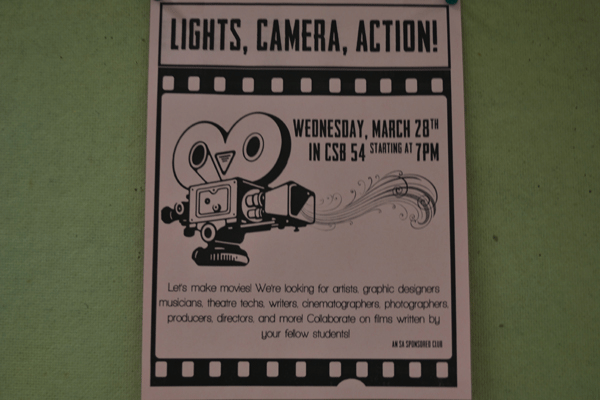If you have been keeping up with the Republican primaries this past election race, you know it has been a bumpy ride for the viewers, readers and listeners. It is not easy pickings for those who are on their way to the real jobless world of recession where every tax dollar, health insurance policy, energy bill, education loan and civil right matters. News outlets are calling it a brutal race of attack ads and back-and-forth debates where everyone is playing defense and little in the way of policy can be heard over it all.
“The campaign has been very negative,” said Nancy Kassop, professor of political science. She thought back to the last primary race between Hillary Clinton and Barack Obama.
“They were competitive but they never attacked each other personally,” Kassop said. “These relationships are much more hostile.”
For those who have been watching every step of the campaign, it has not been easy to decide who to vote for. Many Republican voters are less than ecstatic over those running.
Lewis Brownstein, professor of international relations and a registered Democrat, doesn’t attempt to dabble in this Republican election. As a voter since the 1960’s, he finds the candidates in this particular primary race lacking.
“I’ve seen lousy candidates before, but this takes the cake,” Brownstein said. “Personally, I don’t connect with any of them, but on a major note; [the] policy positions they have taken is due to being forced to appeal to a base. This violated the primary base of politics.”
Mitt Romney, the current front-runner, is a sturdy example of appealing to the masses. He has earned the title “flip-flopper” from competing candidates and major news organizations.
“Romney is concerned with the strong ideology to lead,” Tom Sullivan, fourth-year political science major, said. “When people start doing things for the plain purpose of power they should never be a leader. He has no vision and he doesn’t even know where he stands.”
Romney, according to Brownstein, is a candidate that “most of the people can’t stand.” He proves to be a last resort for most Republican voters, Brownstein said, although some may not feel that a leader who is willing to change his policy based on what the people want is such a bad thing.
“I’m on the Romney bandwagon,” Steven Pinckney, a third-year undeclared student, said. “If you’re looking towards jobs.”
And as a probable candidate to be the nominee, according to Brownstein and Kassop, Romney could be the one that Republicans will have to settle for. But as a Republican, he must find his voters in “low places,” Brownstein said.
“He needs the independent voters and the southern voters, or it can create a problem for him,” Kassop said.
The south being the home of most republican voters, Romney could take his numbers and meet the firm republican support.
The polar opposite candidate, based on numbers, seems to be the old-timer Ron Paul.
“Support for him is deep but not wide,” said Kassop.
Paul has not won a single state yet and holds the fewest delegates. However, he seems to be a viable candidate for young voters.
“Ron Paul would be able to work well with others and he’s got 60 years in government,” Sullivan said.
If voting were based on Facebook “likes,” Paul would be the Republican nominee several times over. He has twice as many “likes” as the rest of the candidates combined.
But Brownstein doesn’t see a bright future for Sullivan’s favorite choice.
“I don’t see why a young person would be attracted to Ron Paul; he stands for limited government and national isolationism,” he said.
Recently, Rick Santorum announced his departure from the race and suspension from his campaign due to his daughter’s sickness and decreasing popularity, as polls have shown.
Even though the GOP and almost every other Republican voter is dissatisfied with what is being offered, there is still a strong need for a conservative president.
“(Under Obama) More people have been put on welfare than any other president,” Pickney said.
Still it may not be enough to rally the voters behind one of their candidates. According to Brownstein the race is too close and the voters are too divided; some being Tea Party members, some being extreme and others being moderate.
“The party has moved so far to the right that I don’t think they’re electable,” Brownstein said. “Obama will win, it’s hard to remove the incumbent and the economy is recovering.”
Combined, Obama has 28 times the amount of Facebook “likes” and five times the amount of twitter followers as the rest of the candidates. Of course some of the “likes” and “followers” aren’t of voting age and may not even live in the U.S., but 25 million people on Facebook say that being behind someone makes a difference.
“I tell all my students ‘You have a right that I didn’t have at your age,’” Kassop said. “The voting age was 21 and I was in college during the Vietnam War when my friends were being drafted.”
The New York State primaries are April 24th and registration deadline is March 30rd. Despite the confusion of campaign ads and brutal debates, inferring on voting records and past statements on issues can create a clear understanding of the candidates. For those who have very little in the way of a clue to what is going on in political America or are more concerned with certain issues such as job creation, taxes and women’s reproduction rights every Republican candidate had something to say on a major issue. Each candidate’s stance is shown plainly without any consultation to what was said during their campaign and focuses heavily on voting records.
